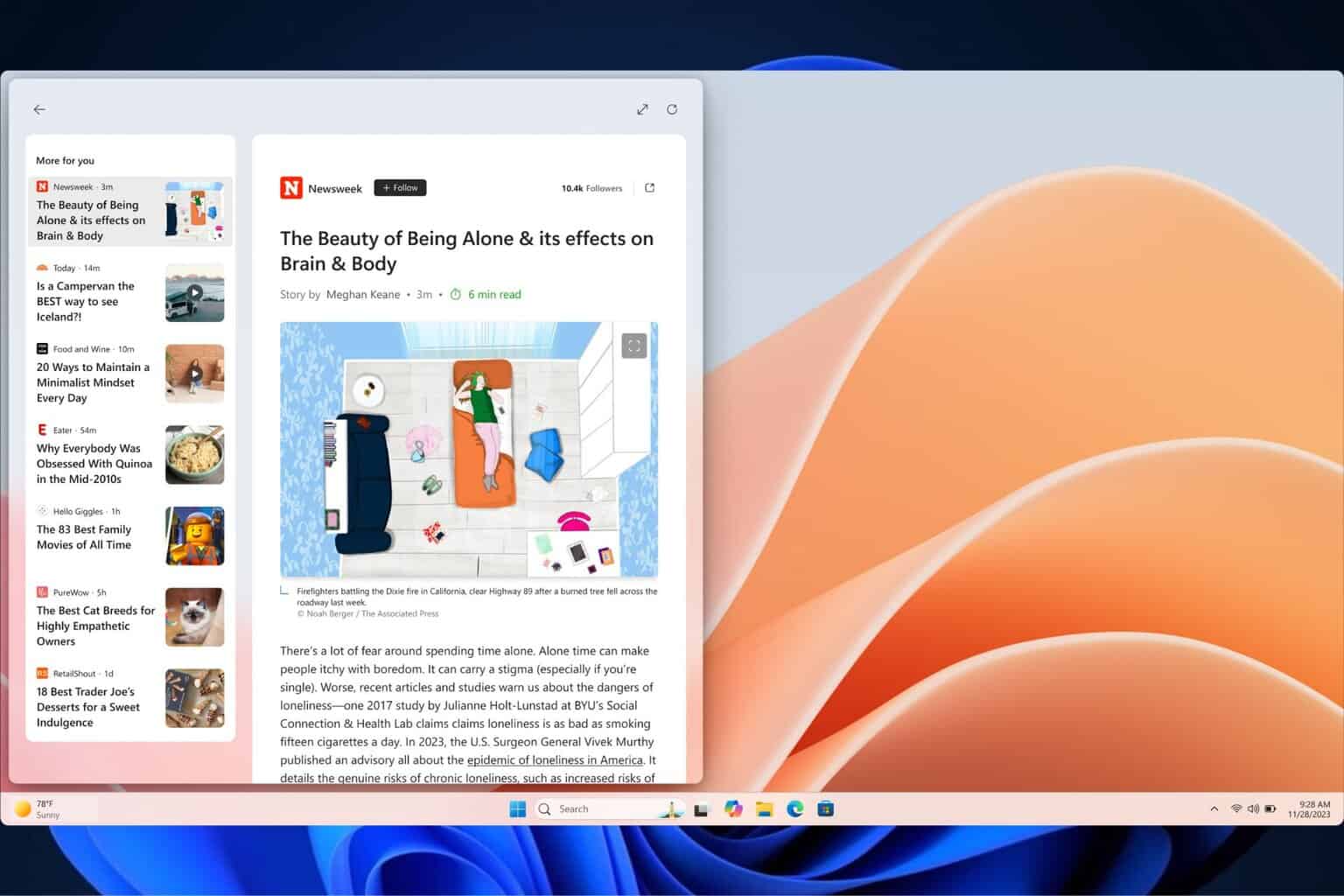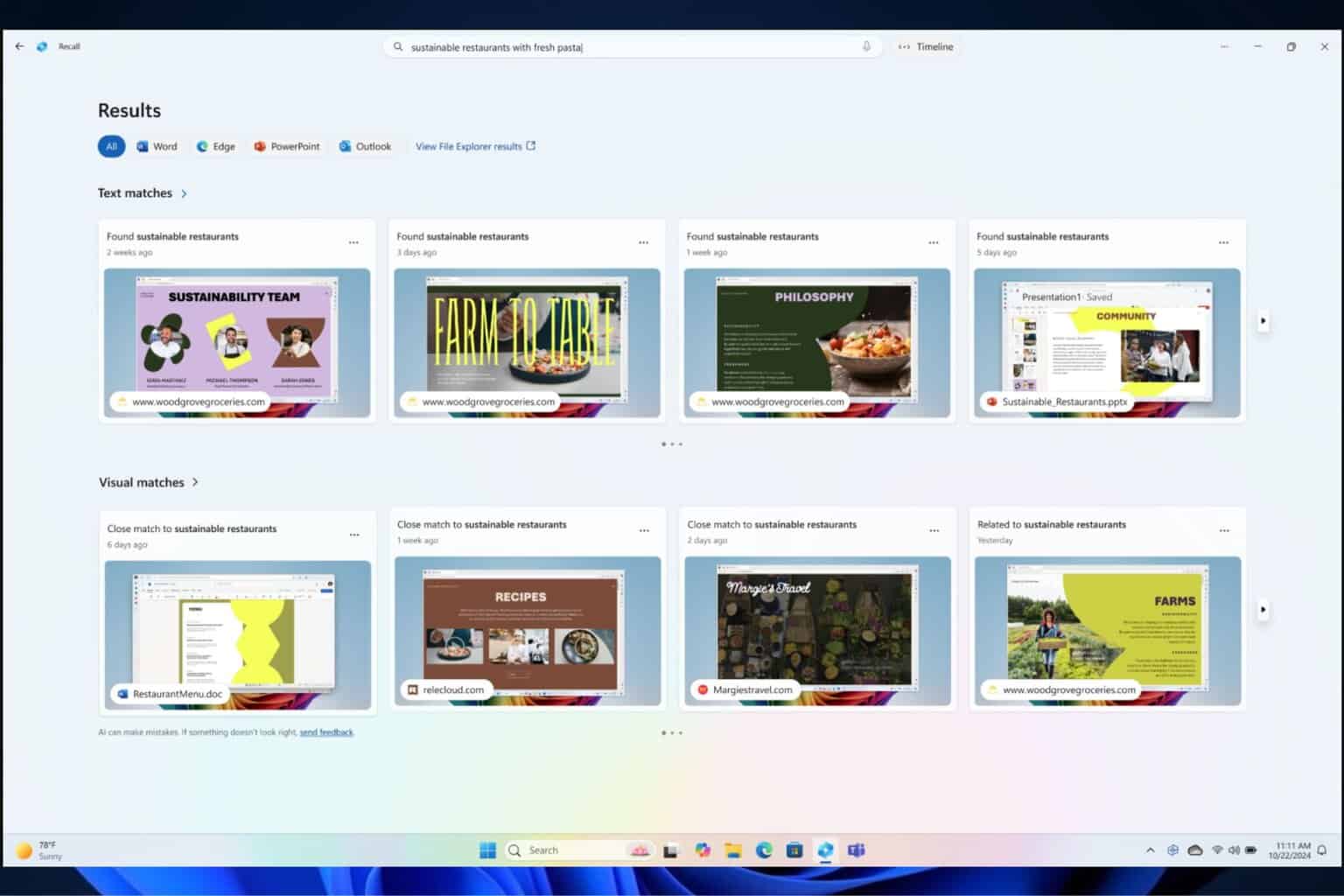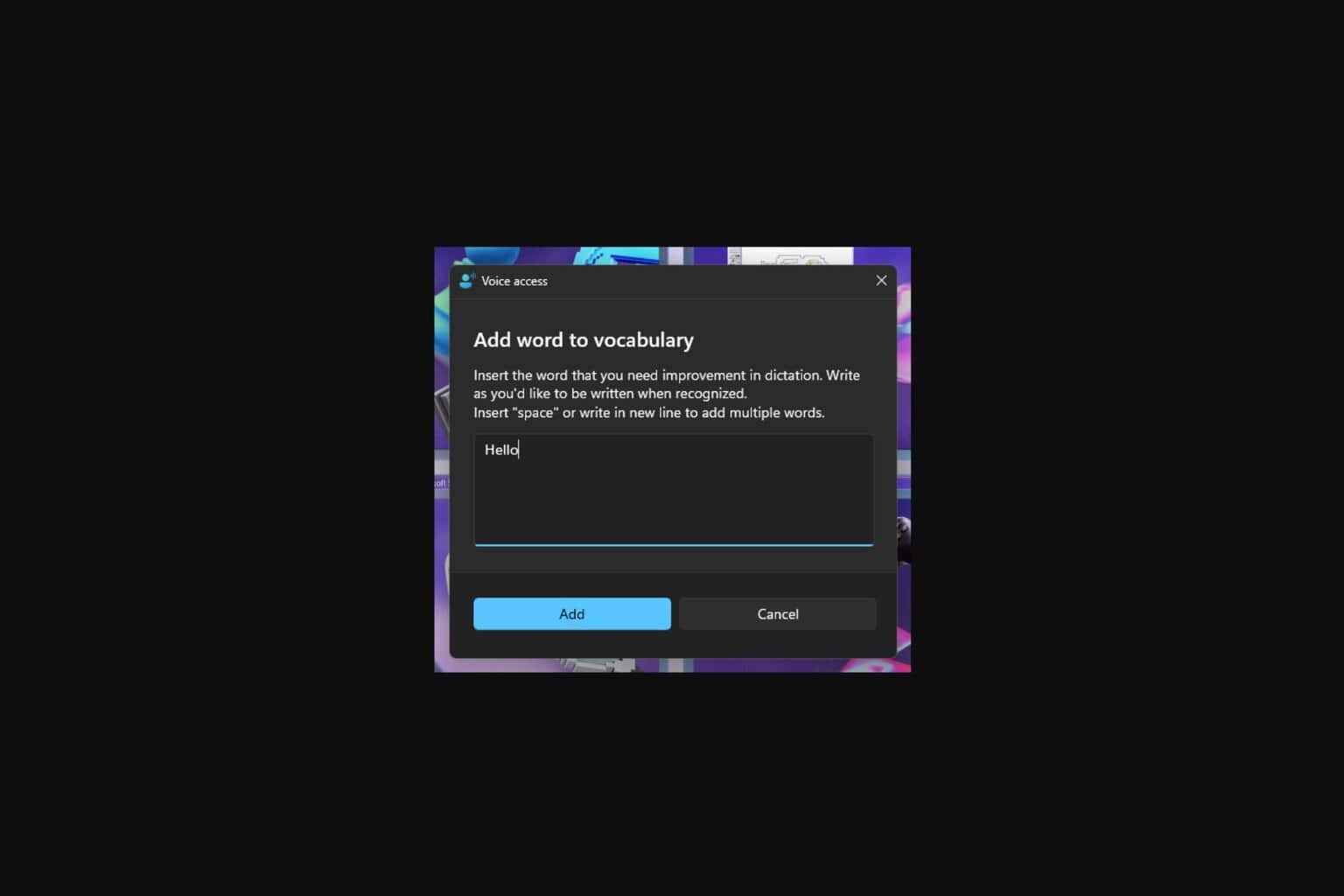How to Create an Unattended Installation of Windows 11
Automate your Windows 11 installation with this trick
6 min. read
Updated on
Read our disclosure page to find out how can you help Windows Report sustain the editorial team. Read more
Key notes
- Windows installs can be a long and painful process where multiple devices are involved.
- We found an easy way to achieve similar results at a fraction of the time.
- Stay tuned to find out the requirements of this process and how to go about it.

You’ve decided you want to install Windows 11, but your device doesn’t meet the stringent system requirements, and you don’t want to spend time in front of the computer clicking through pages of dialog boxes.
There’s a better way. You can sit back and relax while the installation is ongoing without prompting you for information. That’s the beauty of creating an unattended installation of Windows 11, and we’ll show you how.
What are the benefits of an unattended installation?
- Allows you to automate tasks and complete the process faster than a manual installation.
- It can be run on multiple machines using the same installer file.
- Useful for large deployments where you want to standardize the configuration of computers on your network.
- Ability to customize the installation based on needs and preferences.
- No user intervention hence no user password prompts or account sign-in requests.
How do I install Windows 11 unattended?
1. What does an unattended installation require?
1. Hardware requirements check
- At least 4 GB of RAM and 64 GB of free disk space on your PC.
- A USB flash drive or external hard disk drive that has at least 8 GB of free space and is formatted NTFS or FAT32.
2. Internet connection requirements
You will not need an internet connection for an unattended installation since you’ll be installing Windows offline.
This will prevent the system from forcing you to use a Microsoft account or checking whether your device meets the system requirements.
3. Language settings considerations
If you’re installing Windows 11 in a language other than English, it’s likely that there will be no support for this language.
You’ll have to complete the installation in the available language first and then change your language settings to your preferred choice later.
4. Product Key considerations
Since each copy of Windows 11 has its own unique product key, you will use a generic volume license key for the unattended installation.
This unique product key allows you to install the same product on multiple computers. You can find your Windows edition’s generic volume license keys on the official Microsoft page.
5. 32-bit vs 64-bit version considerations
Since Windows 11 does not come in the 32-bit version, the only option is to go for the 64-bit. However, you can still run 32-bit programs on 64-bit by tweaking some settings.
Finally, you’ll need to backup any important files because any installation can go wrong.
2. Creating a Bootable USB Drive
- For this step, we shall be using the Ventoy tool.
- Head to Ventoy’s GitHub repository and download the Windows zip file.
- Once it is downloaded, right-click on it in order to Extract the folder in the current location.
- Next, open the extracted folder and click on the subdirectory named Ventoy. Right-click anywhere on the window to create a new text file named ventoy.json. Copy-paste the following text inside it and save the file:
{ "control": [ { "VTOY_DEFAULT_MENU_MODE": "0" }, { "VTOY_TREE_VIEW_MENU_STYLE": "0" }, { "VTOY_FILT_DOT_UNDERSCORE_FILE": "1" }, { "VTOY_SORT_CASE_SENSITIVE": "0" }, { "VTOY_MAX_SEARCH_LEVEL": "max" }, { "VTOY_DEFAULT_SEARCH_ROOT": "/ISO" }, { "VTOY_MENU_TIMEOUT": "10" }, { "VTOY_DEFAULT_IMAGE": "/ISO/debian_netinstall.iso" }, { "VTOY_FILE_FLT_EFI": "1" }, { "VTOY_DEFAULT_KBD_LAYOUT": "QWERTY_USA" }, { "VTOY_WIN11_BYPASS_CHECK": "1" } ] } - By setting the last argument to 1, the machine will be able to avoid certain registry checks. Such as Windows 11’s Secure Boot with Ventoy.
- Now head to Microsoft’s page to download the Windows 11 Disk Image ISO.
- Select the OS version, and the language, then click on the 64-bit Download button.
- Next, head back to the extracted Ventoy folder and double-click on the Ventoy2Disk file. Then insert your USB drive in order to format it.
- You will be prompted with a new window in which you will be able to select the USB you inserted and then choose Install.
- Now, copy the Windows 11 ISO on the Ventoy drive and reboot your computer in order to enter BIOS. Change the boot sequence so the USB has the boot priority and continue with the installation process.
3. Configuring the Answer File
1. Understanding the Windows Answer file structure
An answer file is a text file that contains answers to questions asked by Windows Setup during a manual installation of Windows.
These questions include where Windows should be installed, which components should be installed on the computer, and whether any specific drivers should be included with those components when installed.
2. Generating an Unattend file using ADK Tools
- Navigate to your browser and download the Windows Assessment and Deployment Kit.
- Launch the setup file and hit Run.
- Choose an installation location by clicking Browse then hit Next.
- Click Next and accept the Terms and Agreement, then hit Next.
- Check the Deployment Tools box, then hit Install.
- Click on your Search icon and open Windows System Image.
- Select File>System Image.
- In Select a Windows Image, choose the ISO file you downloaded in 2 above when creating a bootable USB drive.
- Select your Windows version and hit OK.
- Next, click Create or open an answer file> New Answer File.
- Expand on Components. This will list the various stages for customization, which you can drag to the right side to set the configuration pass. You can check more on how to tweak these settings on Microsoft’s official page.
- Finally, once you’ve added all components, click on File>Save answer file and ensure it is saved in XML format in the bootable drive created in 2 above, then eject it.
- Switch off your PC and insert the bootable drive, and Windows 11 should install automatically.
Since this is a fairly lengthy affair, we encourage you to opt for a Windows answer file generator to speed up the process and minimize mistakes.
Considering how long Windows 11 takes to download, this is a much-welcome solution that doesn’t require too much time. And with the help of some of the automation tools, the installation period should be reduced significantly.
It is worth giving this method a shot, especially if you have multiple machines you’d like to upgrade to Windows 11 simultaneously.
Have you tried this method of installing Windows 11? On a scale of 1-10, with 1 being easy and 10 extremely hard, how difficult was it for you? Share your thoughts with us in the comment section below.
























User forum
1 messages